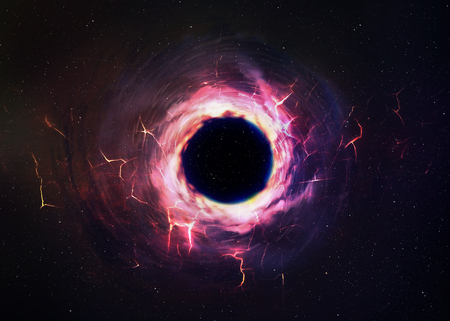
An artist’s illustration of a black hole in space. INQUIRER.net File Photo
Folklore has often linked intergalactic black holes to imminent death and total destruction.
But as far as renowned theoretical physicist and cosmologist Stephen Hawking is concerned, falling into the huge gravitational force won’t necessarily lead to total annihilation.
During a recent meeting with delegates at the KTH Royal Institute of Technology in Stockholm, Sweden, Hawking discussed his new theory that solves the “information paradox” involving black holes, The Telegraph reported.
“If you feel you are in a black hole, don’t give up, there’s a way out,” he told the audience.
Hawking confirmed that everything sucked by a black hole is trapped at an event horizon surrounding the sphere.
But contrary to popular beliefs, anything that fell though could actually re-emerge back into the universe—or a parallel one—through protons, which may escape due to quantum fluctuations.
“The idea is the super translations are a hologram of the ingoing particles,” he explained. “Thus they contain all the information that would otherwise be lost.”
“The information about ingoing particles is returned, but in a chaotic and useless form,” he said. “This information paradox. For all practical purposes, the information is lost.
“The message of this lecture is that black holes ain’t as black as they are painted. They are not the eternal prisons they were once thought,” the genius professor concluded.
“Things can get out of a black hole both on the outside and possibly come out in another universe.”
By definition, black holes are stars that have collapsed under their own gravity, resulting in extreme forces where even light cannot escape.
The idea of the cosmic abyss has thrilled Hollywood producers over the years, resulting in several sci-fi flicks featuring the dreaded space wasteland.
Hawking’s theory made it to the mainstream in the 2014 film Interstellar, where Matthew McConaughey’s character, Cooper, plunged into the black hole Gargantura and managed to escape unharmed. Khristian Ibarrola /ra
RELATED STORIES:
Cosmologist Stephen Hawking heading for outer space
‘Supermassive’ black hole devoured a star for over a decade, NASA reveals